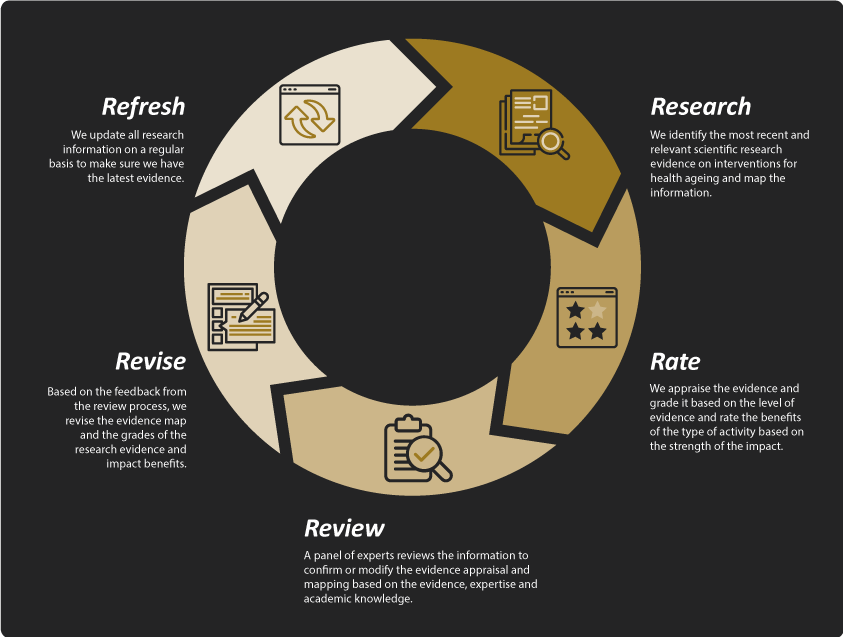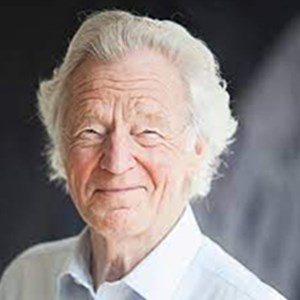
Research & Innovation
Evidence-based Activity for Healthy Ageing
Every day at Goldster, we ask “What is the evidence?” In other words, what is the evidence that underpins the types of activities offered on Goldster to promote healthy ageing which is defined by the World Health Organization as “the process of developing and maintaining the functional ability that enables wellbeing in older age”. What is clear from the research evidence is that healthy ageing requires a multifaceted approach which is why we look at factors to promote healthy ageing from the physical, cognitive and emotional wellbeing perspectives, or Body, Mind and Soul.
Our Approach to Evidence
We take a scientific, systematic and rational approach to finding, assessing, mapping and reviewing the evidence from the published research literature.

Our Geek Notes
We summarise the research evidence for each type of activity for your benefit at the bottom of each class page and in Geek Notes. The star gradings are our simple point system, based on the available research evidence, that indicate the potential level of effect that activity can have on: physical health (fitness, strength and daily functioning), cognitive health (brain function) and emotional wellbeing (mental health).
Each class has been assigned points relating to potential benefit (or impact) from the activity type based on the underlying research evidence.
If no impact points are listed, it means there is no known benefit for that category.

Our Pathways
Our research work constantly feeds into the development of a unique healthy ageing ‘pathway’ called the Systematic Wellness Intervention Pathway that provides the backbone of evidence for all the classes and activities offered on the Goldster platform. Our research and innovation team started the work within our parent company, Care Visions Healthy Ageing where for the last 7 years the team have focused on non-medication interventions and activities to help people age more healthily and prevent physical and cognitive decline in communities in the UK and China.
Research Team
The Goldster pathways and programs are built upon the evidence collated by our Research and Innovation department here at Goldster and our parent company, Care Visions Healthy Ageing. We believe an important part of our mission includes sharing what we’ve learnt along the way, by regularly publishing papers for the common good. Dr Zara Quail, Dr Charles Young and Mark Carter are amongst the esteemed co-authors of the published papers below.


Expert Panel
So you don’t just take our word for it, it is very important to us at Goldster that all the information we put together is also reviewed by experts. We are privileged to have 4 global authorities on healthy ageing on our expert panel. We also conduct extensive peer review projects of our mapped evidence by approaching healthy ageing experts all over the world to review our work.












